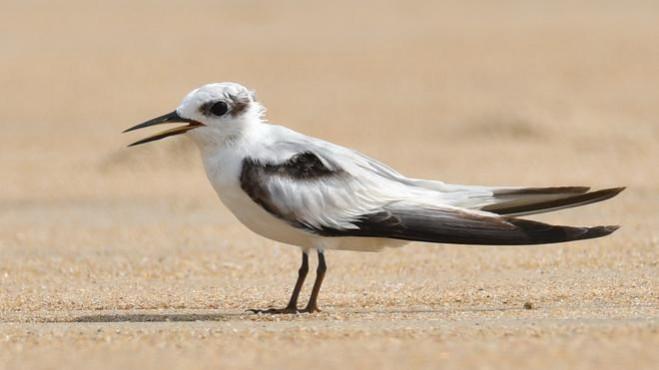
Chennai's bird watchers were recently rewarded with an extraordinary sight — the reappearance of two elusive coastal species, the Oystercatcher and the Saunder's Tern, at the Adyar estuary. This marks the first confirmed sighting of these birds in the city after nearly 40 years, offering hope for the revival of its delicate coastal ecosystems.
For decades, these birds were regular visitors along Tamil Nadu's shoreline, especially in places like Point Calimere and Kanyakumari. They had once adapted so well to the region's conditions that they were believed to be near-resident, returning season after season.
However, with coastal degradation, habitat disturbance, and reduced prey availability, their presence gradually declined, making them a rarity in Chennai's birding circles.
The Oystercatcher is a striking, ground-nesting marine bird known to inhabit sandbars and mudflats. Feeding mainly on fish, crustaceans, and molluscs, it was historically absent from Chennai's usual wintering flocks, making its return noteworthy.
Saunder's Tern, on the other hand, has long been under-recorded due to its past misclassification as a subspecies of the more common Little Tern.
Both species thrive in undisturbed, food-rich coastal wetlands — precisely the kind of environment the Adyar estuary struggles to maintain amid urbanisation.
The rediscovery signals a possible rebound for one of Chennai's most fragile yet vital natural habitats.
Kaziranga welcomes an old guest after 4 years.
— Himanta Biswa Sarma (@himantabiswa) October 4, 2025
The elegant migratory Painted Storks (Mycteria leucocephala) have made a comeback to @kaziranga_ 's skies, soaring once again over our wetlands-A proof that nature heals when we protect it.
Another win for our conservation efforts. pic.twitter.com/82Qa0YgwUt
The Adyar estuary — long pressured by pollution, encroachment, and tidal disruption — still retains the ecological richness to attract rare migratory birds.
Such sightings highlight the estuary's role as a crucial stopover in the larger Indian Ocean flyway, connecting Chennai's waters to global migration routes. For the city's naturalists, this event is more than a moment of wonder; it is a measure of environmental health.
The return of these long-absent birds points to improved conditions, at least temporarily, and underscores the importance of protecting what remains of Chennai's wetlands.
Conservationists believe that sustained efforts to restore mudflats, control pollution, and safeguard tidal flows could help bring back more species that were once abundant but are now only memories. This unexpected visit is a quiet but powerful reminder — Chennai's coastal ecosystems still have the capacity to heal and to welcome back the life they once sustained.

















